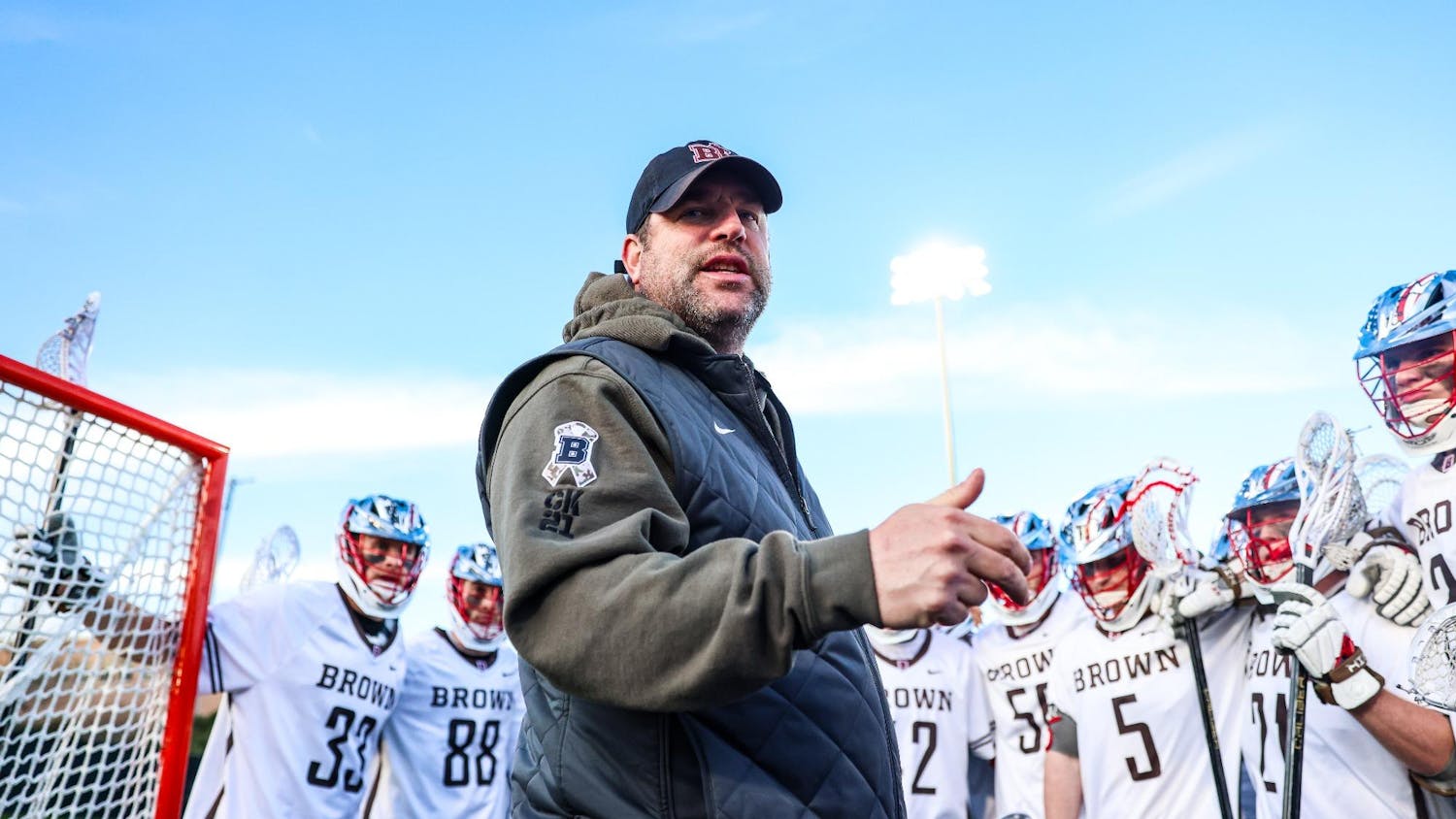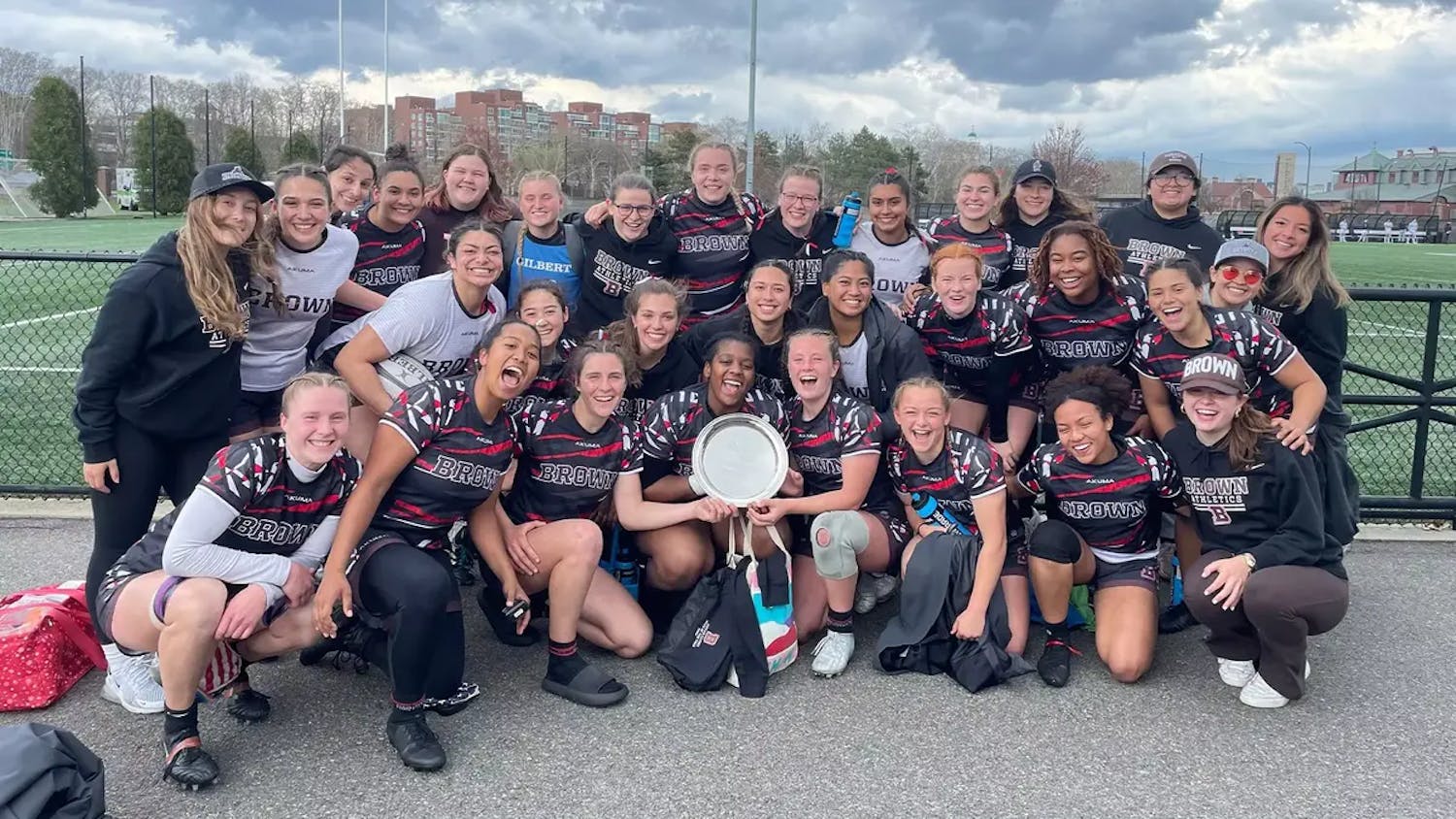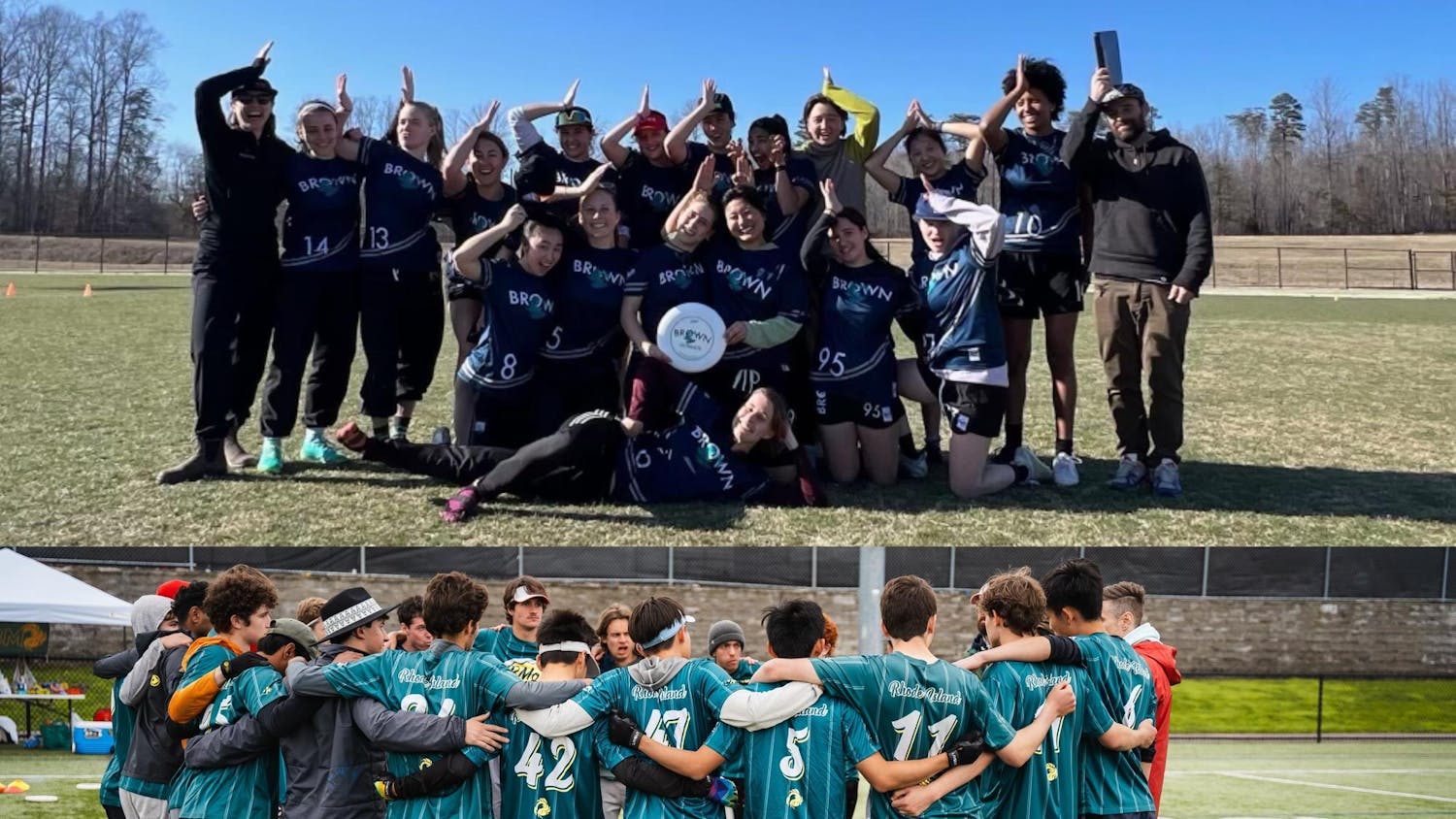While today's Brown Athletics program displays diversity among its coaches and athletes, this has not always been the case. Throughout the history of Brown Athletics, trailblazing Black athletes and coaches have battled racism and adversity to earn athletic achievements while helping to build a more equitable program. This week The Herald will feature baseball player William White, class of 1883, football player Fritz Pollard, class of 1919 and gymnastics coach Jackie Court, who each contributed to the development of Brown Athletics on and off the field.
The first Black professional baseball player: William White, class of 1883
“William Edward White was the first African-American to play in the professional baseball ranks," according to Brown Athletics archivist Peter Mackie ’59. "He played one game for the Providence Grays … (few people know) about him, but if you look at a picture of that 1879 team, there he is."
White was born in Milner, Georgia; his mother was a formerly enslaved African-American woman and his father was a wealthy white man. White and his siblings attended Moses Brown School before being accepted to Brown through a connection via a local Baptist church. As a dually-enrolled student, White was a first baseman for the Brown baseball team while still a senior at Moses Brown.
White also appeared in one game for the Providence Grays, a now-defunct Major League Baseball team, in 1879. Despite recording a hit in the game and committing no fielding errors, White did not play in another professional game. That same year, White was a member of the national championship-winning Brown baseball team, which also featured Lee Richmond, the first MLB player to pitch a perfect game.
Due to his light skin color, White “passed” as a white man to his teammates, and he did not identify himself as African-American until much later in his life, according to Mackie. Not much is known about White’s life after he left Brown in 1881. Despite his lack of name recognition, William White holds the accomplishment of being the first ever African-American professional baseball player.
“The greatest back these eyes have ever seen": Fritz Pollard, class of 1919
Fritz Pollard was nothing short of a Brown football legend. As a first-year student in 1916, Pollard led the Bears to the Rose Bowl. During his sophomore season, he played a key role in Brown’s victory over Harvard at Harvard Stadium. Pollard was the first African-American running back named to the Walter Camp All-American team; Camp himself called Pollard “the greatest back these eyes have ever seen."
As a first-year, Pollard nearly quit the team before being convinced to stay by Buck Whittemore, one of the coaches at the time. Pollard’s early career “was like a meteoric rise to the top, but he was an eyelash away from packing it in," Mackie said.
After leaving Brown after his sophomore year, Pollard was a member of the Akron Pros, a now-defunct National Football League team that won the first professional football national championship. Pollard went on to coach the Pros and became the first African-American professional football coach.
Pollard began his football career playing for Lane Tech high school in Chicago, though he wasn’t able to join the team until his older brother, who also played, threatened to quit the team if Pollard wasn’t given a spot.
Later in his high school career and throughout his time at Brown, Pollard faced racism and discrimination. His high school team once left for a game without him because the other team refused to play against an African-American player.
Members of Pollard’s team at Brown would leave when he came into the locker room or got onto the trolley car to and from practices, and no uniforms would be left for Pollard when he arrived at practice.
One time at Brown, in an intrasquad scrimmage, a white defensive end wanted Pollard to try to run his way, taunting him with racial slurs. Pollard humiliated the defensive end, who after repeatedly failing to tackle him suggested to the coach that Pollard be allowed to play varsity.
At a celebratory bonfire after Pollard played a key role in Brown’s victory over Harvard, President William Faunce said, “Now, young Fred Pollard over there, he’s as good as any white man." Out of more than a hundred athletes inducted into the Brown Athletics Hall of Fame when it was established in 1971, Fritz Pollard was the only African-American.
In recent years, Pollard has gained more respect and recognition. “He has more recognition now than he did in 1915 and 1916 when he was tearing up the gridiron at Brown," Mackie said.
The Fritz Pollard Alliance, an organization dedicated to diversity in football coaching staffs, still bears his name and honors his status as the first Black pro football head coach. Recently, NFL 360 produced a documentary about Pollard entitled “Fritz Pollard: A Forgotten Man.” He is a member of the Pro Football Hall of Fame.
Victories on and off the mat: Brown gymnastics founder Jackie Court’s legacy
“Distinguished, honorable, trailblazing,” was how John Court, current University of Arizona gymnastics coach and son of the late Jackie Court, described his mother.
The architect of the Brown Gymnastics program and the first Black woman and woman of color to coach at Brown, Jackie Court started at Brown in 1969 and made a massive mark on the University over her 32 years as head gymnastics coach. She built the program, led it to an Ivy League title and sent the first Brown gymnast to the national championships.
“I’ve always treated it as her program,” current Brown Gymnastics coach Sara Carver-Milne said, “She built this program, she started it. Her vision and her legacy are what drive us today."
Jackie Court was beloved by her coaches and athletes alike. In one instance, she promised one of her athletes, Debbi Fuhrman ’84, that she would send her to the National Championships within two years if she came to Brown; she delivered on that promise, and Fuhrman is now in the Brown Athletics Hall of Fame.
Jackie Court was also deeply committed to the sport of gymnastics at all levels. She got her start at a YMCA, ran a club for local community members while at Brown, served as a judge and generally worked to help whomever she could. Jackie Court stayed in touch with her athletes even after they graduated, and she stayed connected to the program after retiring as a coach, wishing Carver-Milne luck prior to every competition.
Perhaps Jackie Court’s greatest impact came in the form of her contributions to women’s sports nationwide via the Title IX movement. In the 1990s, Brown attempted to demote the gymnastics team, among others, to club status from varsity status. The team lost its funding, resources and admissions slots. This “almost destroyed the program,” John Court said, but Jackie Court kept the program alive.
She continued “recruiting” athletes and the team did whatever was necessary to keep practicing and competing — going as far as sewing their own uniforms. “Jackie rallied them to not feel sorry for themselves, but to fight for what was right in an appropriate manner with respect and dignity,” Carver-Milne said.
Jackie Court faced adversity along the way: Other coaches and members of the athletics department “ostracized” her, according to Carver-Milne, but she kept on fighting. Eventually, Jackie Court and the team won the landmark Supreme Court case of Cohen v. Brown, which ruled that Brown had acted in violation of Title IX in demoting the gymnastics team, and that the team must be reinstated.
While the ruling was a momentous victory for the Brown gymnastics team and Jackie Court, its impacts were far-reaching. The ruling told schools "you have to follow the laws of the land, regardless of how big your endowment is, no matter how many lawyers you throw at it,” John Court told The Herald.
Carver-Milne makes sure her team knows the importance of Jackie Court and her impact on the program and on women’s sports more broadly.
“It’s so extremely important for everyone that’s part of this program to understand her legacy and how far the program has come (and) how hard she worked to create these opportunities for these young women and future young women and not take any of that for granted,” she said.
The Brown Athletics Department only recently has begun to honor Jackie Court. The process of her induction to the Hall of Fame started in the past year, in spite of the fact her tenure as head coach spanned more than three decades and ended in 2001.
“I applaud her career. She was a pioneer. She was the first head coach of color at Brown and first head coach of color in women’s gymnastics. It would have been fantastic if (Brown) had celebrated her accomplishments during her career and not waited until it was socially convenient,” John Court said.
Despite her success, Jackie Court was not made a full-time employee and was denied requests for increased funding and resources. “With all she accomplished, she still had the obstacles of the Athletic Department that she was facing every single day,” John Court said. “If (Brown) celebrated her during her career like they’re doing now, it would have meant the world to her.”
Correction: A previous version of this article implied that Pollard graduated from Brown when, in fact, he left after his sophomore year. The article also stated that the game against Harvard took place when he was a first-year, rather than during his sophomore season. The Herald regrets the errors.

Peter Swope is the senior editor of digital engagement for The Brown Daily Herald's 133rd Editorial Board. He previously served as a Sports section editor and has also written stories for University News. Peter is a senior from New Jersey studying history.





